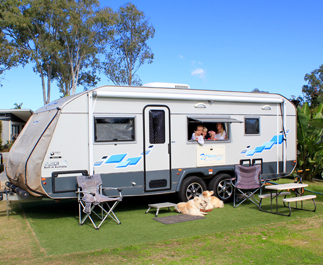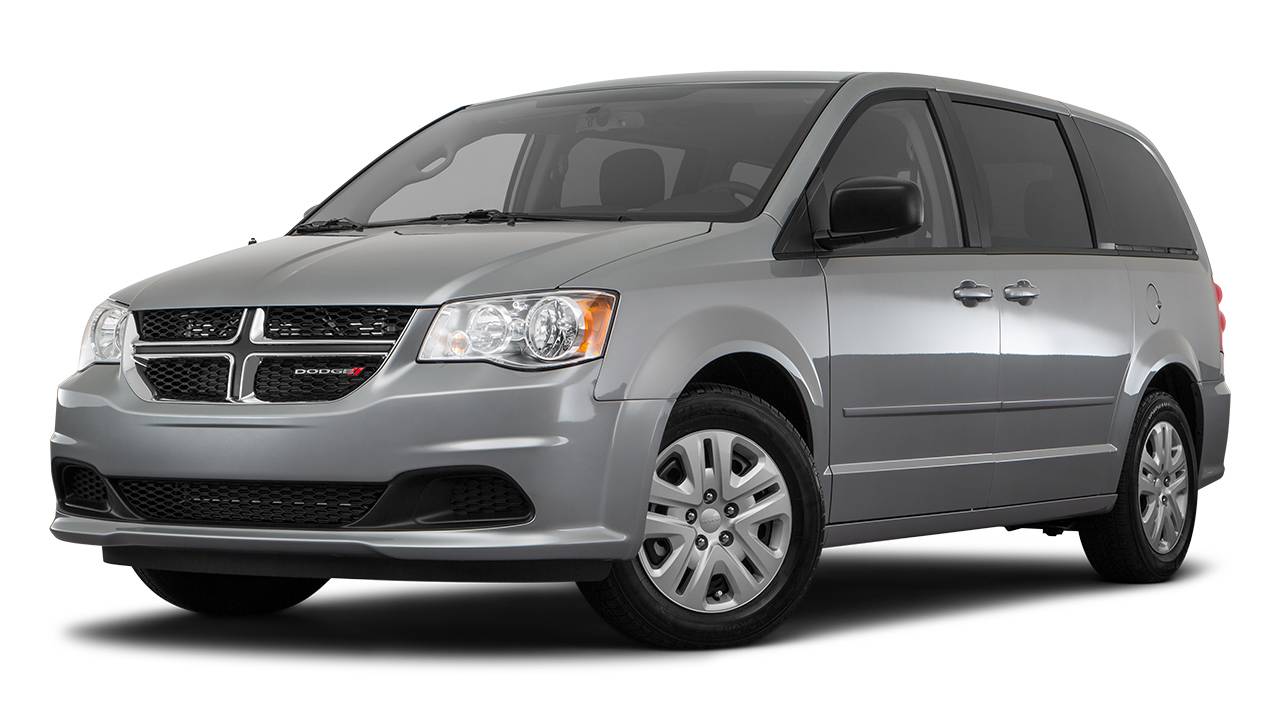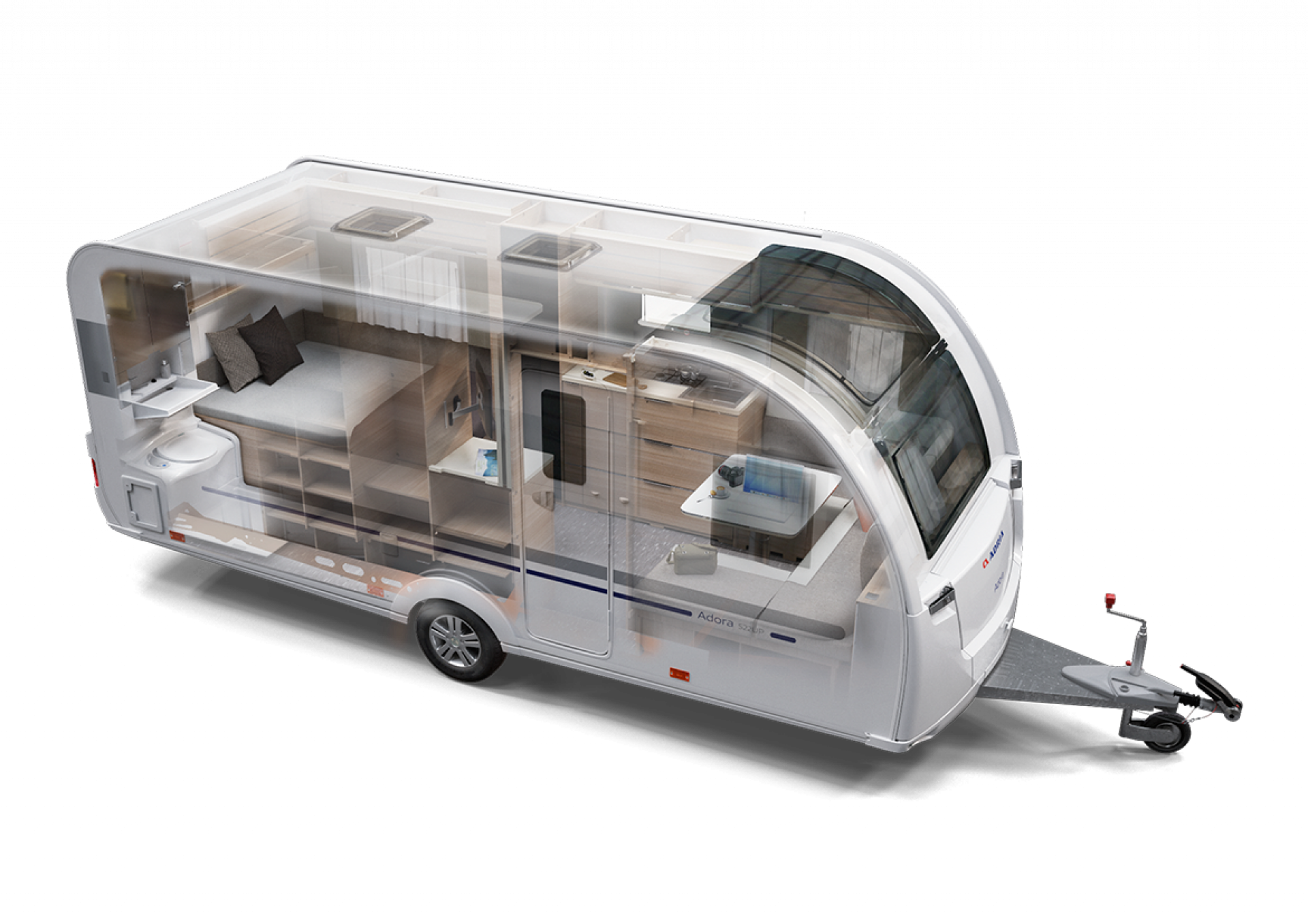
noun
- a group of travelers, as merchants or pilgrims, journeying together for safety in passing through deserts, hostile territory, etc.
- any group traveling in or as if in a caravan and using a specific mode of transportation, as pack animals or motor vehicles: a caravan of trucks; a camel caravan.
- a large covered vehicle for conveying passengers, goods, a sideshow, etc.; van.
- Chiefly British. a house on wheels; trailer.
verb (used with object), car·a·vaned or car·a·vanned, car·a·van·ing or car·a·van·ning.
- to carry in or as if in a caravan: Trucks caravaned food and medical supplies to the flood’s survivors.
verb (used without object), car·a·vaned or car·a·vanned, car·a·van·ing or car·a·van·ning.
- to travel in or as if in a caravan: They caravaned through Egypt.
noun
-
- a large enclosed vehicle capable of being pulled by a car or lorry and equipped to be lived inUS and Canadian name: trailer
- (as modifier)a caravan site
- (esp in some parts of Asia and Africa) a company of traders or other travellers journeying together, often with a train of camels, through the desert
- a group of wagons, pack mules, camels, etc, esp travelling in single file
- a large covered vehicle, esp a gaily coloured one used by Romany Gypsies, circuses, etc
verb -vans, -vanning or -vanned
- (intr) British to travel or have a holiday in a caravan
1580s, from Middle French caravane, from Old French carvane, carevane “caravan” (13c.), or Medieval Latin caravana, picked up during the Crusades from Persian karwan “group of desert travelers” (which Klein connects to Sanskrit karabhah “camel”). Used in English for “vehicle” 17c., especially for a covered cart. Hence, in modern British use (from 1930s), often a rough equivalent of the U.S. mobile home.
 Liberal Dictionary English Dictionary
Liberal Dictionary English Dictionary


